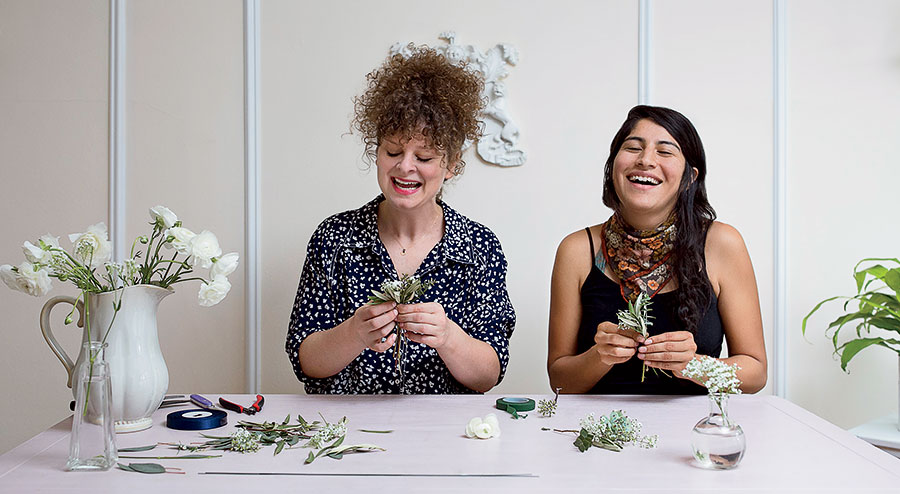One year ago, I was an environmentally conscious engaged man with no notion of how to plan a wedding. A few months into my engagement, my husband-to-be and I were up to our bow ties in marriage details, learning about how to reduce the waste stemming from our big day by using seasonal flowers, bamboo utensils, and vintage formalwear.
While no big event will be waste-free, we aimed to make ours both small and green, and found that Chicagoland has plenty of sustainable-celebration experts to help couples achieve their dream day without guilt.
Start with the invitations. Virtual invites clearly consume fewer resources, but you can still mitigate the carbon footprint of printed ones. Erickson Design (ericksondesign.com), a small graphic design firm run by self-described “tree-huggers,” uses papers milled in the Midwest by machines run by wind and water power. (The company also plants trees and donates leftover paper to CPS art departments.) Cofounder Peggy Lambert recommends saving paper by “forgoing the traditional reply card and envelope, and using an online platform to track replies.”
When it comes to flower design, ask your florist about local, in-season options. “The challenge is that we’re in the Midwest, and our growing season is shorter,” says Emily Neumann, founder of Forest Park–based EcoWilde Flowers (ecowilde.com), which sources flora from Illinois and nearby states. Options for weddings in colder months include dried flowers and renting living plants. “Plants can be reused a million times. All you have to do is find cool pots that suit people’s unique styles,” she notes.
Looking for gently used or vintage dresses? Try Wish Upon a Dress (wishuponadress.com), a national nonprofit selling discounted designer wedding gowns, which has a shop on the Near West Side. (When brides shop online, they’ll receive a selection of one to five dresses to try on, based on a style they select.) The org also accepts donations, if you’re ready to let go of yours after the ceremony.
“People are getting more conscious of waste at their weddings,” says Sarah Jane Mallin. She’s the events manager at Colvin House (colvinhouseevents.com), a historic mansion in Edgewater where I got married, and serves on the board of the Green Wedding Alliance (greenweddingalliance.com), a consortium of vendors committed to sustainable practices.
Be thoughtful about items that end up being disposable, she advises. “Sometimes people get tiny favors for the guests, but nobody really wants to take home something with your name and the date of your wedding on it. Put that money, the cost of that monogrammed bottle opener, back into the dinner.”
Bottom line, says Mallin: “Having a sustainable event planner makes a huge difference in eliminating waste in weddings. A person who does this all the time knows what works and what doesn’t.”




